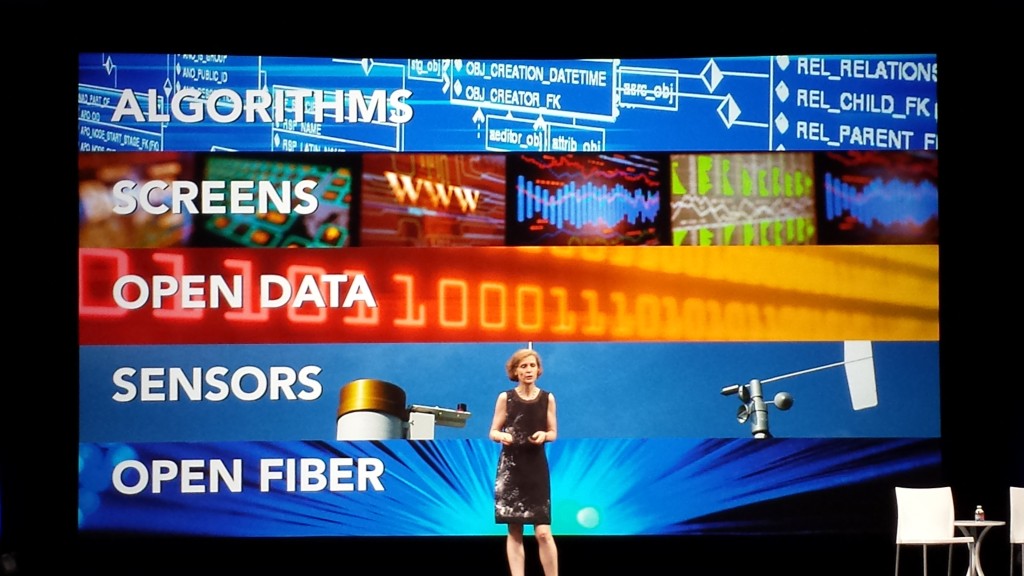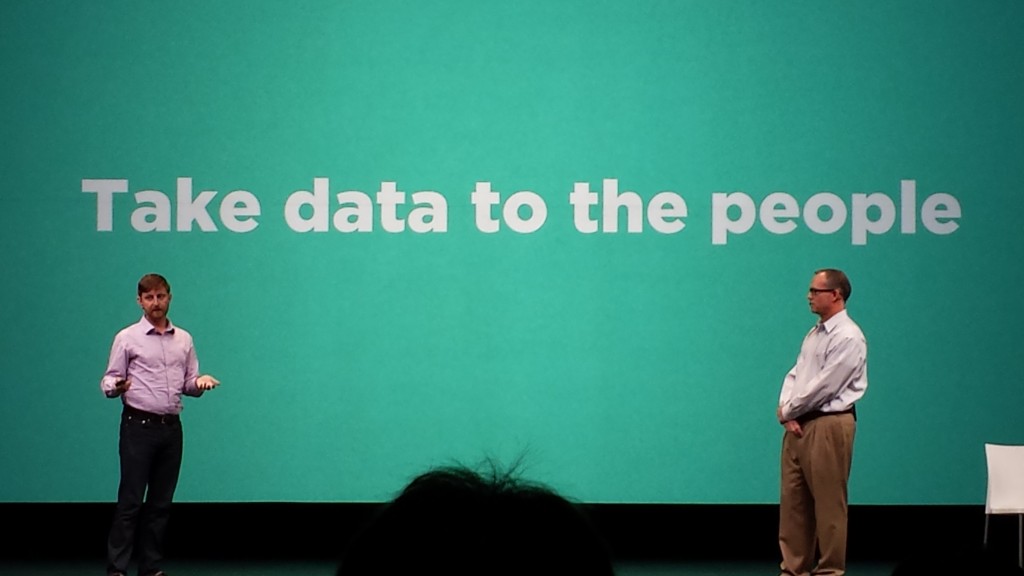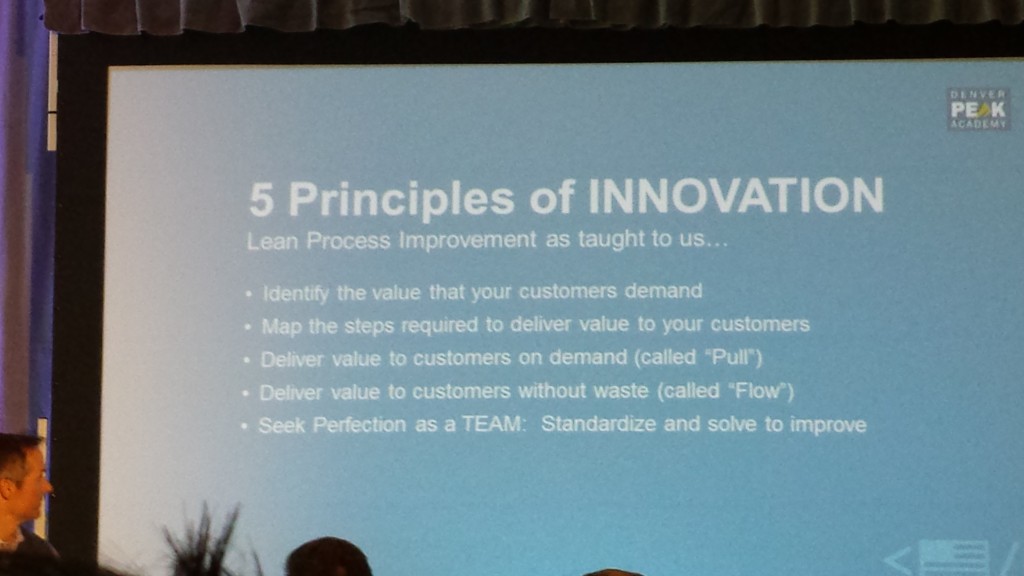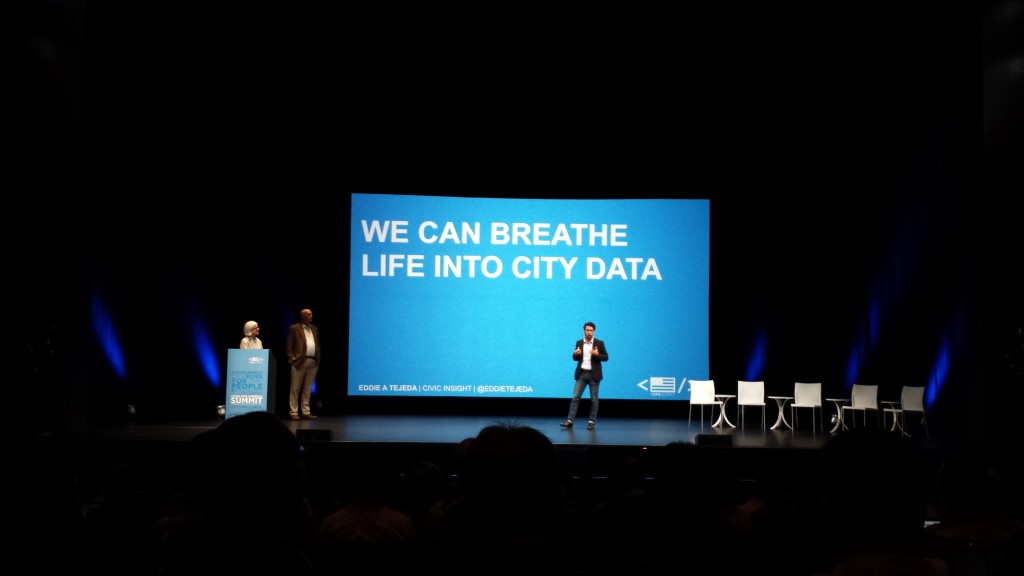You can tell that Code for America is pretty special just from their tagline: “Government can work for the people, by the people, in the 21st century. Let’s make it work.” Code for America is a nonprofit started by Jen Pahlka in 2009 to create opportunities for local government geeks to connect with tech geeks to make government services effective and easily accessible by focusing on the user. They accomplish this through several programs: a fellowship where they imbed their tech fellows for a year in local government and a brigade that is formed locally of all government, tech, designers, etc. who participate in civic hack nights, advocate for open data that is meaningful and create applications. Several of their fellowship projects have been so successful that they’ve turned into civic start-ups.
I’d heard about Code for America several years ago and wanted to learn more about them, but there was never an extra time to do so until I just made the time this week to attend their Code for America Summit 2014. I didn’t know quite what to expect except that I would likely learn a few helpful tools, make some new friends and become more comfortable with the tech side since my tech skills are limited to asking my Outreach and Communications Director, Stephen Box, to “Get me an app to do this” or “I want this data when I click on this button!”
To say I was blown away is such an understatement. With over 900 people from government and tech backgrounds across the country and internationally (go Code for Japan!), 30 sessions on a main stage in the beautiful Yerba Buena Center for the Arts and additional 70 sessions held at a nearby hotel comprised of planned sessions and unconference sessions (ones that folks created at the Summit), there was a lot to take in, and my head is still spinning from trying to frantically absorb everything.
The focus was on open data, making it accessible and meaningful to the public and always starting with the user experience – what does s/he want and need and how do you deliver that efficiently? Clearly, these principles resonate in my work (hello, Funding Program) so I was keen to find affordable hacks, which is not a word you should be afraid of since in this context it’s about finding a better workaround.
I did learn many new tools, such as Denver’s Peak Performance Academy’s Lean Government techniques to eliminate waste and inefficiencies through innovation, and connected with like-minded people from Dallas, Chattanooga, Brooklyn and British Columbia among others. There is definitely a large and growing community of people who want to make government really work for the people in a collaborative way that is not just about high tech, but about ease of process and transparency. Sign me up for that!
While I was introducing the Neighborhood Council system to many of my new friends (all of whom loved the idea), one person I met, Jane Massey of the Dallas area Habitat for Humanity, was actually excited to meet me because they just based a position they created, Director of Neighborhood Empowerment, on our system to organize local residents to advocate on housing issues to their city government. Pretty neat! It was also cool to bump into Glassell Park Neighborhood Council board member, Francisco Contreras, who happens to be the Innovation and Strategic Initiatives Manager in the City of West Hollywood as well. Mayor Garcetti’s new Chief Data Officer, Abhi Nemani, was there, too, and we’ll be working on providing more open data training that he presented (just 3 weeks into the job) at the Congress. The best thing is that he was the Co-Executive Director for Code for America so I’m excited that he’ll be bringing that energy and vision to the City.
I’ll be putting what I learned into practice these next few months in all aspects of the Department while working closely with Neighborhood Councils to make sure that what we are doing is what Neighborhood Councils and their stakeholders are wanting. Many of the presentations were recorded and are accessible online now. Please check them out and learn about how we are going to be making government better together.




